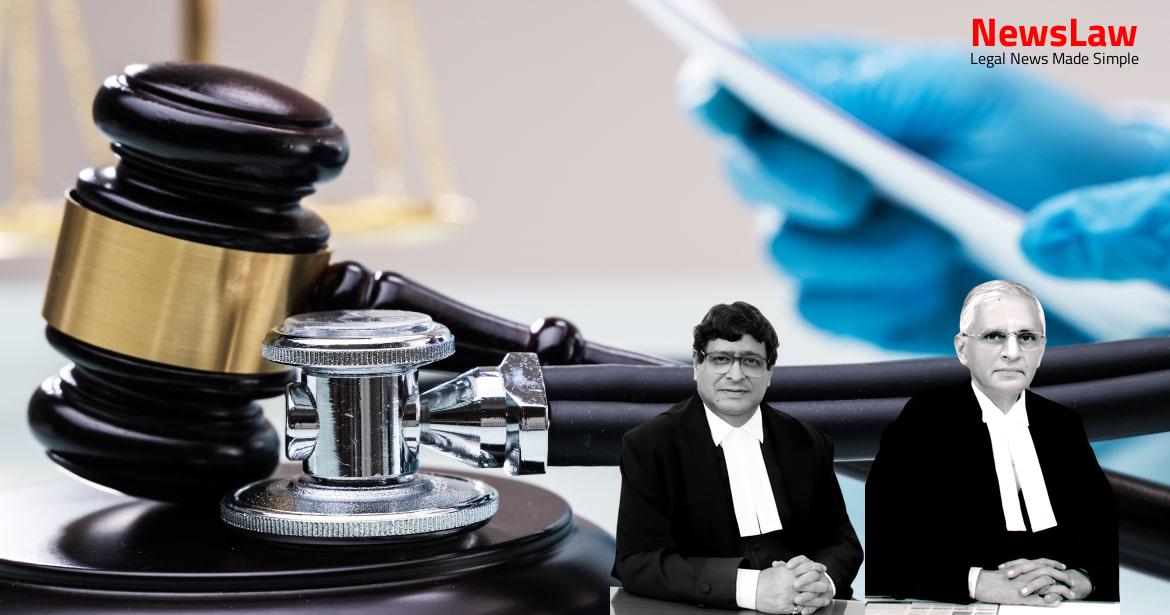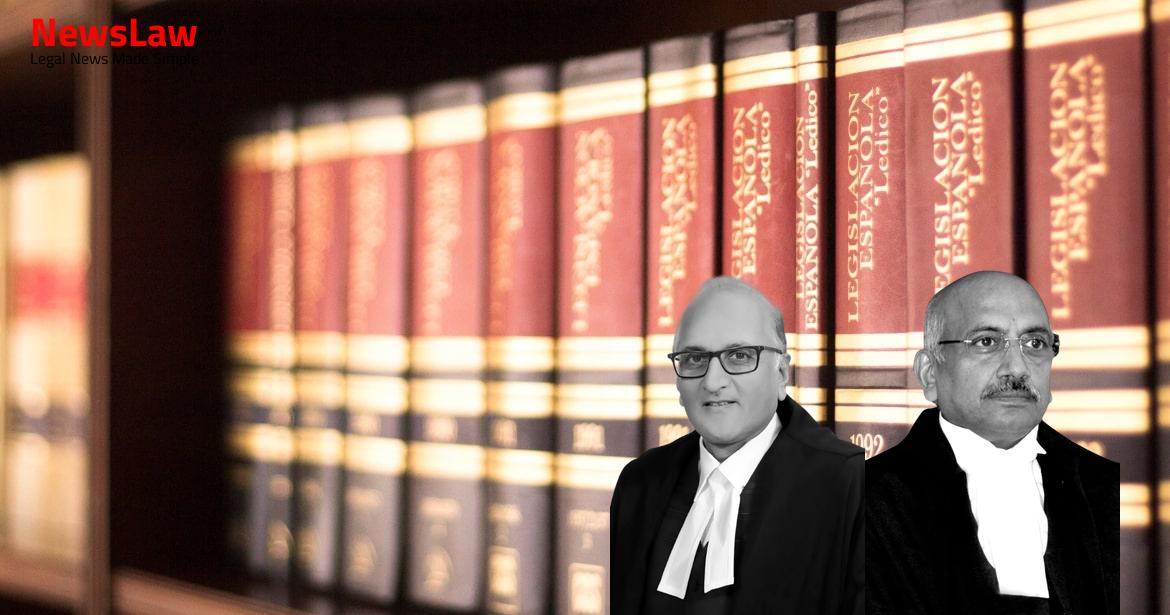Exploring the intricate legal analysis by the court in a case involving the interpretation of tax exemption provisions for a religious building. The case delves into the broad scope of tax exemption eligibility based on the connection between building usage and religious/educational activities, highlighting the importance of a liberal view in implementing tax statutes. Follow along to understand the nuances of tax exemption provisions and the significance of beneficial interpretations in promoting economic growth and industry development.
Facts
- The petitioner claimed that the building is exclusively used for accommodating nuns engaged in religious and charitable activities.
- The ground floor of the two-storeyed building contains a prayer hall, kitchen, refectory, study hall, and small rooms for sisters.
- Currently, 8 student-sisters are residing in the building.
- The upper floor of the building has 5 rooms for sisters, a dormitory, and a study hall.
- The building measures approximately 5000 sq. ft. and is intended to be used solely as a religious house.
- The Government’s order dated 11.09.2006 states that the building is exempt from building tax under Section 3(1)(b) of the Kerala Building Tax Act, 1975, as it is used for religious purposes.
- It is noted that the building has never been rented out for any amount and will not be rented out in the future.
- The Full Bench decision in State of Kerala & Ors v. Unity Hospital (P) Ltd. has been stated to have reached an incorrect conclusion.
- The State claims that residential accommodations for nuns and hostels for students would not be covered by the exemption in Section 3(1)(b) of the Act.
- In Civil Appeal No.202 of 2012, building tax was levied on residential accommodation for nuns undergoing religious training, which was later challenged in court.
- The respondent in this case highlighted the religious and charitable services provided by the nuns and their commitment to leading a life of a SANYASINI.
- All appeals, except one, are by the State of Kerala against judgments exempting the buildings in question. The one appeal by an assessee was decided in favor of the State.
Also Read: Limitation Period in Arbitration Disputes: Court’s Legal Analysis
Arguments
- Senior Counsel argued that the goods had to be proved to be manufactured by the assessee
- Senior Counsel Shri Venkatraman argued that the question was covered by the judgment in Vadilal Chemicals Ltd. v. State of A.P. (2005) 6 SCC 292
- The case involved a small-scale industry engaged in bottling of anhydrous ammonia claiming exemption from sales tax
- Assessee was allowed irregular tax exemption for bottling of ammonia as it was found to be the same commodity with no new commodity emerging
- Show-cause notices were issued suggesting bottling/packing of gases was not recognized as ‘manufacture’
- The question before the Court was whether the assessee could claim the exemption
Also Read: Interpretation of Royalty in Software Import Case
Analysis
- Section 235 of the Kerala Municipalities Act provides property tax exemption for hostel buildings owned by educational institutions.
- Section 3(1)(b) of the Kerala Building Tax Act does not have a specific exemption for hostel buildings.
- The interpretation of ‘building used principally for religious or educational purposes’ is crucial in determining tax exemption eligibility.
- The Court highlighted the need to consider the broader purpose of educational institutions providing hostel facilities.
- Hostel buildings provided by educational institutions to accommodate students qualify for tax exemption under certain conditions.
- The connection between building usage and religious/educational activities is a key factor in determining tax exemption eligibility.
- Commercial activities in buildings can disqualify them from tax exemption under the Act.
- The liberal view of implementing notifications and policies is important in interpreting tax exemption provisions.
- The ‘manufacture’ interpretation in tax statutes should not be based solely on excise law principles.
- The case law and past judgments were referenced to support the interpretation of tax exemption provisions.
- The role of hostels in educational institutions, particularly medical and nursing colleges, was emphasized in justifying tax exemptions.
- Exemption in tax statutes depends on the construction of the expression ‘any factory commencing production.’
- Exemption is a freedom from liability, tax or duty, taking varying shapes in a growing economy.
- Exemption provisions should be tested with different touchstones and are like exceptions, interpreted strictly on normal principles.
- Once an exemption becomes applicable, it should be construed liberally.
- Exemption notifications in tax statutes should be read liberally to achieve the object of promoting economic growth or have some beneficial reason.
- An exemption provision should generally be strictly interpreted, but beneficial exemptions for encouraging certain activities should be liberally interpreted.
- Exemption notifications must be read as a whole, and if any condition is not fulfilled, the party is not entitled to the benefit of the notification.
- Exemption provisions in fiscal statutes should be construed liberally to encourage capital investment and establishment of industrial units for increasing production of goods and promoting industry development.
- Recourse to other canons of interpretation of statutes should be resorted to only if they give rise to anomalies or absurdities in interpreting exemption notifications.
- The general rule is strict interpretation, while a special rule for beneficial and promotional exemptions allows for liberal interpretation.
- Section 3(1)(b) of the Act exempts buildings used principally for religious, charitable, educational purposes, or as factories or workshops from the building tax.
- The exemption also includes buildings owned by the Government of Kerala, the Government of India, or any local authority.
- The definition of ‘charitable purpose’ includes relief of the poor and free medical relief.
- Luxury tax is charged annually on residential buildings with a plinth area of 278.7 square meters completed on or after April 1, 1999, as specified in Schedule II.
- Statute should be construed in alignment with the object sought to be achieved by the provision.
- In case of ambiguity, interpretation must favor what is exempted.
- The beneficial purpose of the exemption in Section 3(1)(b) should be given full effect.
- Authorities dealing with beneficial exemptions should be applied to the cases at hand.
- Literal formalistic interpretation of the statute should be avoided.
Also Read: Interpretation of Section 43B: Debentures vs. Interest Payment
Decision
- The appeals filed by the State of Kerala have been dismissed
- The decision in the case stands as it is
- No further action will be taken by the court regarding the appeals filed
Case Title: GOVERNMENT OF KERALA Vs. MOTHER SUPERIOR ADORATION CONVENT (2021 INSC 129)
Case Number: C.A. No.-000202-000202 / 2012



